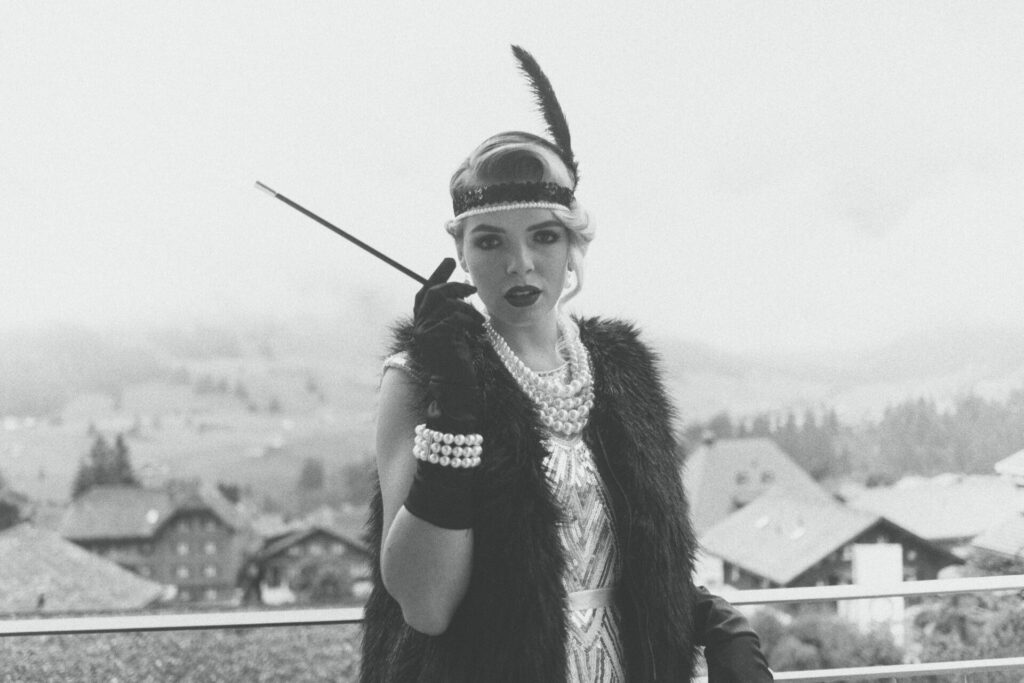Have you ever heard of Belgium's rallyes? If you're not from a rich and established family, it's unlikely: these dances are organised by parents from Belgium's aristocracy and wealthy bourgeoisie so that their children create a social and professional network and perhaps even meet a future partner from the same social class.
For those outside the elite, the notion of privileged families organising exclusive parties for their offspring may seem quaint, but the tradition is alive and strong in modern Belgium.
What originated in France as a happening in the chic arrondissements of Paris or bourgeois regions such as Bordeaux spread to Belgium. It is perhaps no surprise that the dances would take place in castles close to Brussels in Walloon Brabant or other exclusive venues in the capital.
According to catering company Paulus, contemporary rallyes (or 'rallies') in Belgium are organised around themes such as The Great Gatsby. The events take place during the social season from October to April. This avoids inconvenient clashes with exams and summer weddings. And as you might have guessed, putting on a dance isn't cheap with few expenses spared, reported Le Figaro.
Events for all ages
Parents register their children between the ages of 8 and 10. From the age of 12, group activities include cultural outings, board games and dances. Between 15 and 19, the parents of girls often organise and pay for the parties.
Social rallies originate from car rallies organised by bourgeois families and which would finish with a ball, writes Le Monde. After World War II, wealthy mothers would organise events to find suitable partners from the same social set as their daughters.
Contemporary social rallies have done away with the cars and focus just on the networking aspect. The car rallies and dances themselves were substitutes for balls thrown by the aristocracy.
Exclusive guest lists
Not just anyone gets invited to the private parties, with participants chosen according to their background. Potential invitees can sign up for a specific event, after which the organisers will consider their credentials.
In France, potential participants are registered in a social directory or the Paris Polo directory. A similar directory exists in Belgium, an initiative by the aristocratic Merode family.
Not simply an old tradition, many of the young participants look forward to the extravagant dances, parts of which can be seen the Tiktok accounts of some French teenagers. In a video called "speed-dating a noble", one teen explains that her grandparents and parents met at a rally, just like she and her boyfriend.
Social media publications about the rallies have sparked animated discussion between teenagers of different social classes in France. Some more wealthy youths defend the soirées, saying that their parents worked hard to attain their standing. Others highlight the inherited privilege and question the notion of meritocracy in today's society.
Related News
- World's richest family: Speculation looms about LMVH line of succession
- Richest 1% own quarter of all wealth in Belgium
Despite the class divisions that the exclusive rallies promote, the tradition remains popular with a flourishing industry catering to the needs of the events. Large numbers of young people still register for them. One teenager recounts how she had to justify her entry by disclosing information about the salary of her parents.
Sociologists Michel and Monique Pinçon, former researchers from France's centre of scientific research (CRNS), examined how such events discreetly entrench the power of the upper classes.
Everything there is an "implicit transmission" of bourgeois values, the researchers explained in L'Express. Families can perpetuate their socialite influence "without interference" from outside the upper echelons. The cultural outings help a younger generation become familiar with this rarified culture and develop a network with their peers, thereby cementing social ties and power relations which reproduce themselves each year.

